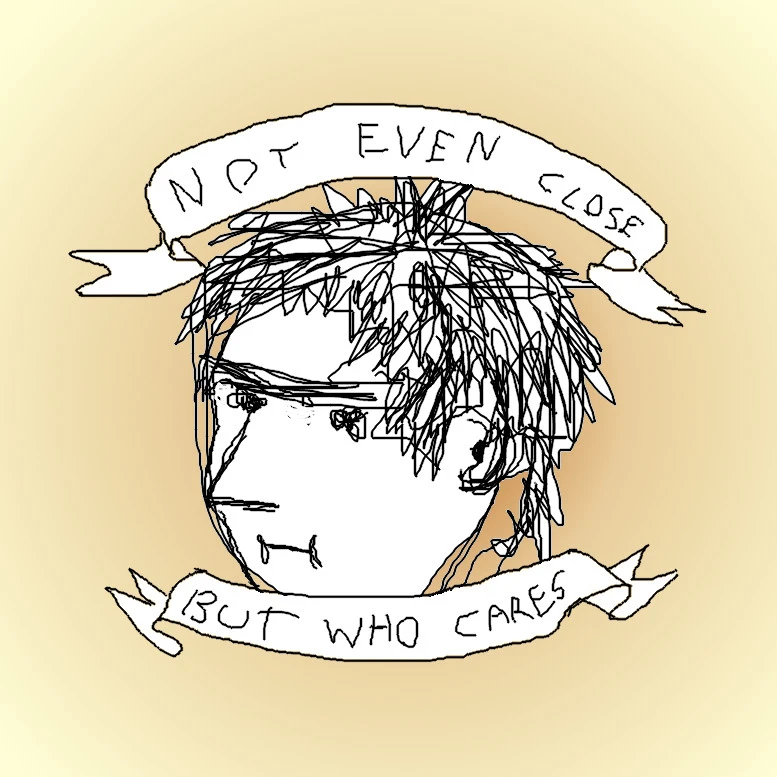There’s also an argument that the moon isn’t actually a moon since it doesn’t actually orbit around the Earth. If you look at their respective orbits, the moon and Earth kind of shift places like a spinning helix pattern and the orbit of the moon is more tied to the sun than the Earth.
I haven’t watched this all the way through, but it looks to largely cover the same material. I don’t know how common this is among moons, but I think it makes Earth’s relationship with its moon that much more special.
Yeah I think the impact that created the moon is the main reason why there’s life on this planet. That impact also mixed up the heavier metals and liberated enough phosphorus making the composition of earth’s crust unique. Also the two metal cores fused and made it oversized, prompting the difference between the rotation of the Earth and the core, making the magnetic field that protects our atmosphere possible…
So yeah, I’m definitely not optimistic about life on different planets…
But hey, if it happened once, maybe we’ll get to find some remains of another system to which this happened as well. Or maybe, someday, someone else will find ours. Or perhaps gravity is the only force keeping us from drifting off the surface of our rock, preventing us from falling into the darkest void for eternity, with the vain hope that your frozen corpse will someday land in someone else’s yard, like a cosmic frisbee.
The universe is large enough that similar combinations of events could have happened elsewhere too. But it’s also large enough that those places are most likely further from us than our species will ever travel.
Perhaps too far to ever travel, but if we can detect it to at least be aware of their existence, then that might be enough for us. Just an answer.
Honestly, if we ever got a really credible answer, I’m sure we’d dramatically increase the pace of space travel research, to the point where we might innovate a way to get there. Maybe we do one of the space/time bending options, or maybe we find a way to punch a hole through spacetime or something like that. If there’s a will, we’ll put a ton of resources into exhausting every potential way to do it before giving up. It might even create multi-national unity in a way that we’ve never thought possible.
So please, if you’re an alien that’s been quietly listening to our broadcasts, please send an answer somehow.
And I’m sure the strong tidal pull likely had an accelerating effect on the early stages of the emergence of life, since the first steps would have basically had to crash into each other in water without having any other way to move. There are many other ways for that to happen on the “millions of years” time scale, but the amount the moon moves our water has got to have had a notable effect.
Earth is and always has been the giant beaker of chemicals that has one of those magnetic stirrers in it, thanks to the moon.
One of the current theories of life formation involves thermal vents, which provide energy and motion (and necessary chemicals) without any need for lunar tides.
Yeah, I suppose I could have made a list of the various other ways, like the water cycle, thermal vents, and the effects of surface level winds on water below the surface too. But even given all those methods, anything else that helps move water around faster is gonna have some effect.
I believe there is but it’s also kind of unnecessary to think about it since regardless of where it is past Mars and Venus it’s unreachable anyway.
In the fifth or sixth book of the Foundation series they follow a map to Earth that mentions a planet with huge rings and a planet circled by a giant moon. Throughout the universe, this combination was so unique you could identify the home of humanity among trillions of planets.
It’s a weird book but I’m glad I read it.
Well, Foundation and Earth is the fifth book of the Foundation trilogy… of course it’s weird.
Similar to the five book Hitchhiker’s Guide trilogy.
Yeah, but the Foundation trilogy has seven books.
The last two being prequels.(Also it’s connected to the Galactic Empire trilogy, which does have three books, but was published in reverse order, and the Robot series, a four book duology not to be confused with Asimov’s other robot books, though it’s set in the same universe, and also to The End of Eternity, which is set in a different timeline altogether but is sort of a prequel to the whole shebang.)
Adams had one more short story in the Hitchhiker’s universe, but debatable whether it’s technically part of the trilogy.
Wasn’t there one more book written in the world by a separate author? Or is that this one?
Eoin Colfer’s And Another Thing
That’s the one! Thank you very much.
Other than Adams’s radio scripts, the only other book mentioned on wiki is a book by Terry Jones (of the Pythons) based on a game that was based on the mention of the “Starship Titanic” from Life, the Universe, and Everything. I’d never heard of it before though.
I remember that. I played the game as a kid and, when I found out it was a book years later, was thrilled! After reading it, I was a bit disappointed, but it was fun.
Someone else in this is referenced what I was remembering:
Ah that cover looks vaguely familiar, so I must’ve seen it referenced at some point. I’ll check it out.
Ah, the Douglas Adams approach.
And the idea of such a big moon was part of why it was largely thought of as an unfounded myth.
And it shows how Asimov had zero conception of how ridiculously huge the galaxy is, though that’s just the storylines being a product of their time, probably.
Or he was writing a fiction and knew he could play fast and loose with scientific laws.
Asimov wrote non-fiction books about astronomy; I’m sure he knew as much about it as you do.
Nah, I read the whole series recently and for some details that bothered me looked up the how the science on that progressed. I can’t give you exact examples as I don’t remember details, but I do know that there’s a bunch of very mistaken assumptions that the series is built on that he had no way of knowing back when he started and had to keep going forward (remember, the series was written over several decades starting in the fourties) and also a bunch of errors where he could have known better but just messed up.
Okay. We both agree that you have access to information that some who died in the last century wouldn’t have known.
I mean, obviously? That’s not what I was saying at all. I think you misinterpreted my original post in a big way.
Well technically Charon is bigger relative to its parent body but, y’know, Pluto isn’t a planet…
A-ha! So the real reason Pluto got degraded was so Earth could keep it’s biggest moon status!
Big Moon has gotta be behind this!
Always making waves…
That’s messed up, right?
Found Gus.
I’ve heard it both ways.
Twin planets. Caron and Plato. Downgraded to dwarves because NDG sucks milky ways.
He might suck, but you know it wasn’t his decision right?
Yeah, but it’s fun to blame him. He was vocally parading the news and using it, as usual, for self promotion. So I let him have it.
Charon is still a moon, nobody upgraded it to dwarf planet.
I thought for an object to be a satellite it’s orbital point had to be located inside the body of the other entity.
There’s currently no formal definition requiring that. By that definition, none of Pluto’s five moons would be moons, since they all orbit the same barycenter.
There’s a whole discussion about it here and it looks like it might be reconsidered in the future https://en.wikipedia.org/wiki/Charon_(moon)#Classification
That seems terribly unfair. Downgrades but no upgrades?
Due to tidal effects the moon is slowly getting further away from the earth, so we’re living at just the right time to see such spectacular eclipses
Just add some really massive thrusters to the Artemis 3 payload manifest and nudge it back every so often
Or detonate a nuclear waste dump to send it flying off into deep space. We’re 25 years overdue already.
There are some schools of thought that say that a large moon like ours should be a part of the Drake Equation, because without which life would have a very hard time even on supposed “garden planets”.
Another factor that is likely to affect civilizations is an easy source of energy, like oil. We got lucky, in that the evolutionary development in Lignin in plants - and the several million years needed for bacteria to catch up and be able to break it down - are what created those massive deposits of organic matter that became trapped deep in the Earth and modified into oil. Without that oil we are unlikely to have reached several milestones, including transportation, population levels, trade, high technology, and even access to space. And this would start affecting us several hundred years back, with steam engines.
But maybe that’s what normal civilizations go though before leaving their planet, and the abundant access to oil will cause us to destroy earth before we can leave it 🤔
I recall one paper that tried to analyze how long it would have taken to go from a pre-coal civilization in the 1800s to spaceflight, all without hydrocarbons from the ground, and they estimated over 8,000 years to develop sufficient biological sources of hydrocarbons that could advance tech enough to just get into orbit. And the planetary population would have never exceeded 2B in the process. Oil, gas, and coal have done a shitton to enable technology. Even something as simple as electricity requires significant hydrocarbons Just in the infrastructure, not to mention the production of electricity itself.
I like to imagine an alien “watcher” with a lifespan measured in billions of years who has been hanging out in our solar system since its formation. It finally decides to contact us humans and tells us that it saw our moon being formed from another planet smashing into Earth billions of years ago. “Yeah, we know - wanna see the movie we created showing it?”
Our moon is only the largest moon to planet ratio in our solar system if you discount Pluto as a planet.
Fun fact: if Luna was only about 30% heavier than it is currently, the Earth’s barycenter would lie outside of Earth, which would potentially make Earth not count as a planet by the modern IAU definition.
The real question is… Could such a situation be inhabitable, could life evolve on such a world?
The Whack theory still has some important exceptions, which is why there’s a Double-Whack theory, which also has exceptions.
“The moon was created this way” is an opinion.
“hypothesis”, rather than “opinion”, no?
Hypothesis:
- A tentative explanation for an observation, phenomenon, or scientific problem that can be tested by further investigation.
- Something taken to be true for the purpose of argument or investigation; an assumption.
- The antecedent of a conditional statement.
I’d agree if it was stated as “current thinking holds that” or “one theory is” not just “here’s how it happened”. The latter is an opinion.
I love that one of the characters in Iain Banks’ “Transition” tries to find aliens by spotting airtight -looking vessels (ships, vans,…) during solar eclipses, for this exact reason.
That was, perhaps, the weirdest, Iain M. Banks book I’ve read.
Hell yes it was weird as hell! It was also the most conceptually mind boggling (with all the gender and sexual fluidity on top of everything else). I felt from style of writing and tone it was very personal and intimate, guess thats why I liked it so much.
The weirdest book to me was feersum endshin (sp?), but I mean, we’re reading Banks “it was the day my Grandmother exploded”, so…
Feersum Endjinn that took such a long time to read the phonetic bits. Loved it though. Subsequent reads were better.
So evangelion was right?
Jokes aside, the probability of moonlike-moons forming in earthlike-planets should be added to drake’s equation and see what that begets.
Might explain a lot of the silence, at least for life as we know it
The drake equation is a bogus probability that really means ultimately nothing. I wouldn’t put stock in anything it says.
Why is that?
The Drake Equation was not really meant to be used. The original purpose of the Drake Equation was to drum up conversations surrounding the first SETI. All it really did was condense everything someone should look for in a possibly human habitable world where aliens may exist. We have much better ways to calculate and search now.
I understand, thank you
But the moon size thing isn’t a coincidence, thats part of what makes solar eclipses so rare, the moon needs to be at the correct distance when it passes in front of the sun or it isn’t as impressive, and it does do that some times.
Total* solar eclipses. Mars has solar eclipses, just not very impressive ones since the shadows are so small, but you could actually look directly at the sun to see the shadow at that distance, without fucking up your eyes
Do they bother calling them “eclipses” or “transits?” Like we don’t say Mercury or Venus eclipse the sun.
“They”?
Here meaning the overall astronomy community.
NASA seems to call them eclipses, as well as several other Space Agencies that should be recognized as authorities here, I can only assume that is due to the fact that Phobos and Deimos orbit Mars, and Mercury and Venus don’t orbit Earth.
Sometimes I wonder if the moons size / existence is one of the reasons why life is even possible in the first place - Maybe aliens would know what it’s like to have a moon a quarter the diameter of the home planet because otherwise life has no chance, maybe life is even more likely on dual planet systems like Pluto and Cheron, maybe that’s already too similar in size and life has no chance, maybe the median sentient creature in the universe has experienced a tide, or maybe not - anyways I dunno that much about exoplanets or astronomy in general so every thing I’ve said might be completely bonkers xD
It sounds more like the moon is just earth spare parts. Like when I put things back together. Always a bin of extras that hang around in the back of the truck, sliding around and what not.











